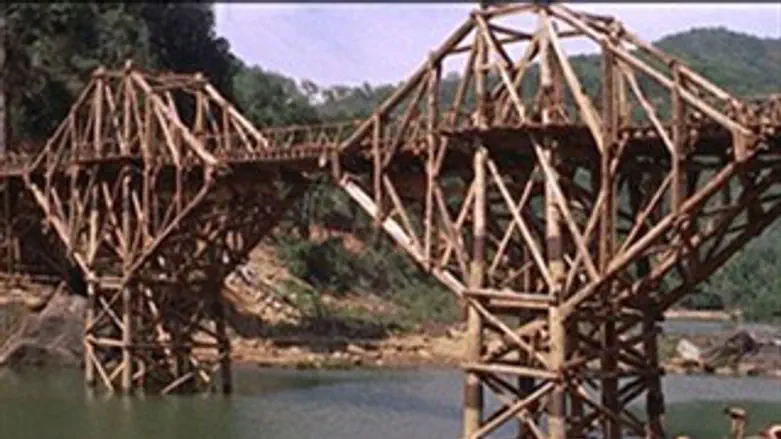
Egypt and Saudi Arabia want to construct a giant bridge to accommodate road and rail traffic across the Gulf of Aqaba, Der Spiegel reports.
Egyptian officials say the project, under discussion since 1988, has been approved.
Egypt's interim Prime Minister Essam Sharaf of the ruling junta has reportedly put General Abdul Aziz, chairman of the Arab Road Association, in charge of overseeing the project.
The Gulf of Aqaba runs along the eastern edge of the Sinai Peninsula. Plans call for the 32-kilometer (20-mile) bridge to cross the narrow Strait of Tiran from Ras Nasrani, near the Egyptian resort of Sharm el-Sheikh, to Ras Hamid in northwestern Saudi Arabia. Parts of the bridge would be suspended.
For the Arabs, the massive construction project would be a triumph linking the middle east to north africa for the first time since Israel's founding in 1948. The absence of such a route, Israel says, is a void of the Arab's own making rooted in their refusal to normalize relations with the Jewish state.
Officials believe that tolls paid by millions of Muslim pilgrims on their way to holy sites in Saudi Arabia could make up for the roughly $5 billion the bridge is expected to cost. They also believe the bridge will significantly increase the number of pilgrims.
But Israel and Jordan are concerned the project is a bridge too far. Both nations have vital and prosperous sea ports, Eilat and Aqaba, in the northern reaches of the Gulf of Aqaba whose profitability is threatened. Also, the area of the Red Sea where planners intend to construct the bridge is highly important to Israel and Jordan as it provides them with access to the Indian Ocean.
Five years ago, former Egyptian President Hosni Mubarak abruptly shelved the mammoth project shortly before construction began after Israel expressed security threats.
A spokesman for the Saudi government said, "We won't let anyone discourage us from our construction plans. The Strait of Tiran lies in international waters."